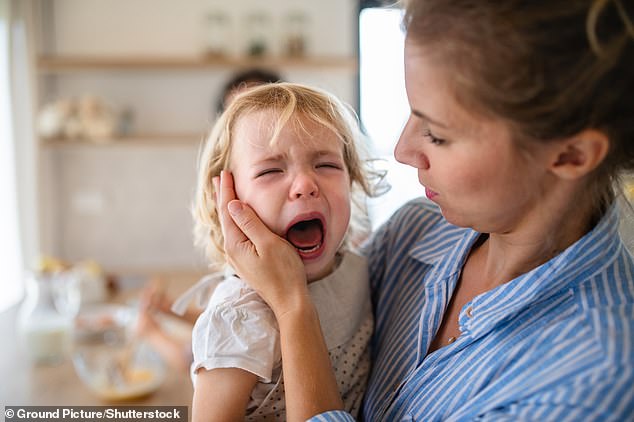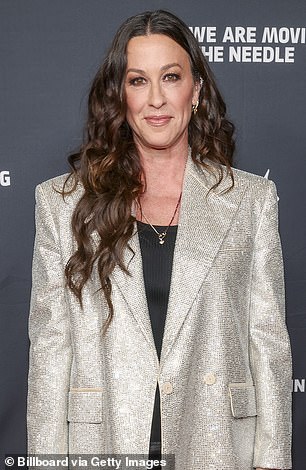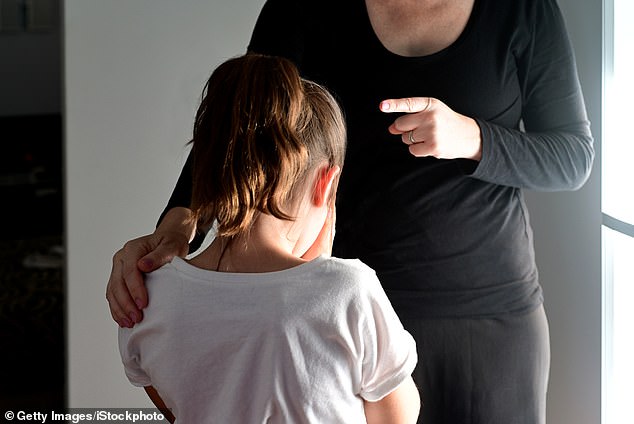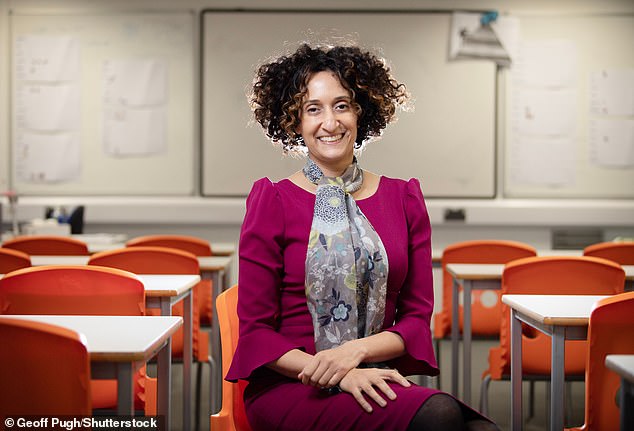If you’re a parent, you’ll likely have heard of the popular trend known as ‘gentle parenting’.
The approach, increasingly fashionable with Millennial and Gen Z parents, encourages adults to never raise their voice.
Gentle parents calmly explain to their child the consequences of their behaviour, rather than getting angry and engaging in a shouting match.
But if you’re an advocate of gentle parenting, you might want to start to toughen up for the good of your child’s future.
According to a new study, children who experience more ‘authoritative’ parenting do better at school up until the age of 11.
The analysis of nearly 6,000 children from across England suggests ‘clear boundaries’ and a bit of tough love help youngsters thrive.
‘Higher parental limit-setting was associated with a greater likelihood of children achieving the expected level,’ say the study authors.
Celebs who use gentle parenting include actress Mindy Kaling, singer Alanis Morissette and comedian Dax Shepard – but many claim it fails to show kids the consequences of their negative actions.

If you’re an advocate of gentle parenting, you might want to start to toughen up for the good of your child’s future (file photo)


Celebrities who use the gentle parenting style include actress Mindy Kaling (right), singer Alanis Morissette (left) and comedian Dax Shepard
According to experts, the punishment-free style focuses on improving a child’s self-awareness and understanding of their own behaviour.
It completely avoids shouting and use of the word ‘no’, while maintaining warmth and empathy and trying to act as the child’s friend.
‘The idea is to be more like a coach for your kid rather than a punisher,’ said Dr Karen Estrella, pediatrician at Cleveland Clinic in Ohio who was not involved with the study.
But some fear gentle parenting leads to children becoming spoilt and entitled – and increases the likelihood their behaviour will spiral out of control.
Meanwhile, the more traditional authoritative parenting involves ‘high levels of psychological control and clearer parental limit-setting’.
Although it also includes displays of warmth and sensitivity, shouting and other forms of boundary-setting are not off-limits with authoritative parenting.
The new study by researchers at the National Centre for Social Research, a registered charity in London, tracked nearly 6,000 children for more than 10 years.
It involved interviews with families, surveys with childcare staff and class teachers, and linking of survey results to educational attainment data.

The more traditional authoritative parenting involves ‘high levels of psychological control and clearer parental limit-setting’ (file photo)
Parenting styles and the progress of children were recorded from the age of two right up to the end of primary school (Year 6, ages 10-11).
According to the findings, children who experienced authoritative parenting were more likely to reach the expected standard in reading, writing and maths tests in Year 6, they found.
Having limits set by parents was also linked with better academic performance for Key Stage 1 children – those aged five to seven.
Authoritative parenting was also better in this sense than ‘authoritarian’ parenting, which employs even greater strictness and far less warmth.
Although the study suggests that gentle parenting hinders academic performance, it’s unclear why exactly this is, but it may be that children who know no boundaries are more prone to disruptive behaviour that distracts them from learning.
Higher academic performance may continue past the age of 11 following authoritative parenting, although this is not something the study looked at.
One critic of gentle parenting is Katharine Birbalsingh, commonly known as Britain’s strictest headmistress, who thinks the approach makes modern parents ‘infantilised’ and doesn’t hold children to account.
‘The culture and the language that’s being used means parents feel that they’re not in a position of authority over their child,’ she said.

Katharine Birbalsingh (pictured), commonly known as Britain’s strictest headmistress, thinks the gentle approach makes modern parents ‘infantilised’
Professor Vivien Hill, psychologist at University College London’s Institute of Education, thinks gentle parenting can lead to problems when the child starts school.
‘That child is going to be entering the world of school where a teacher has to be able to control and teach 30 children,’ she told the Telegraph.
‘Nobody has the capacity to negotiate in that environment.’
On the other hand, Sarah Ockwell-Smith, gentle parenting advocate and author, claims the philosophy results in ‘calmer, happier children’.
Gentle parenting will ‘validate a child’s feelings and employ kindness, empathy and understanding’, she said, but many believe that in practice it fails to curb chaos.











